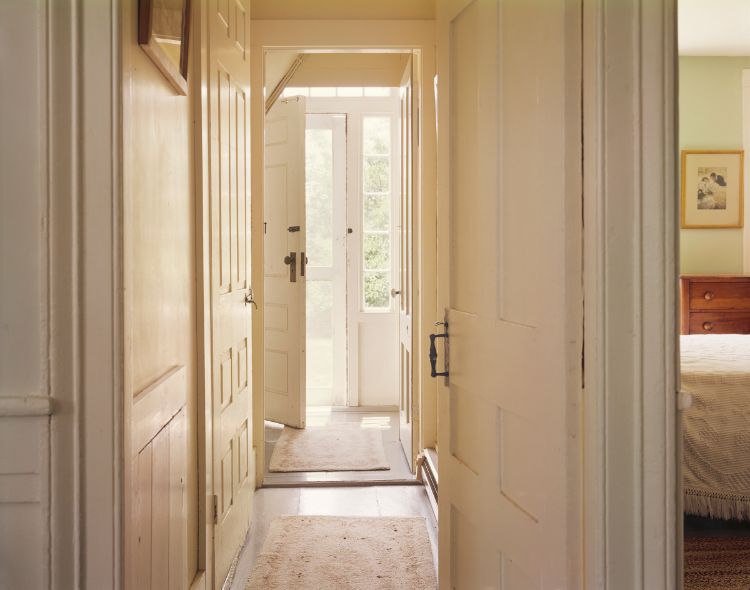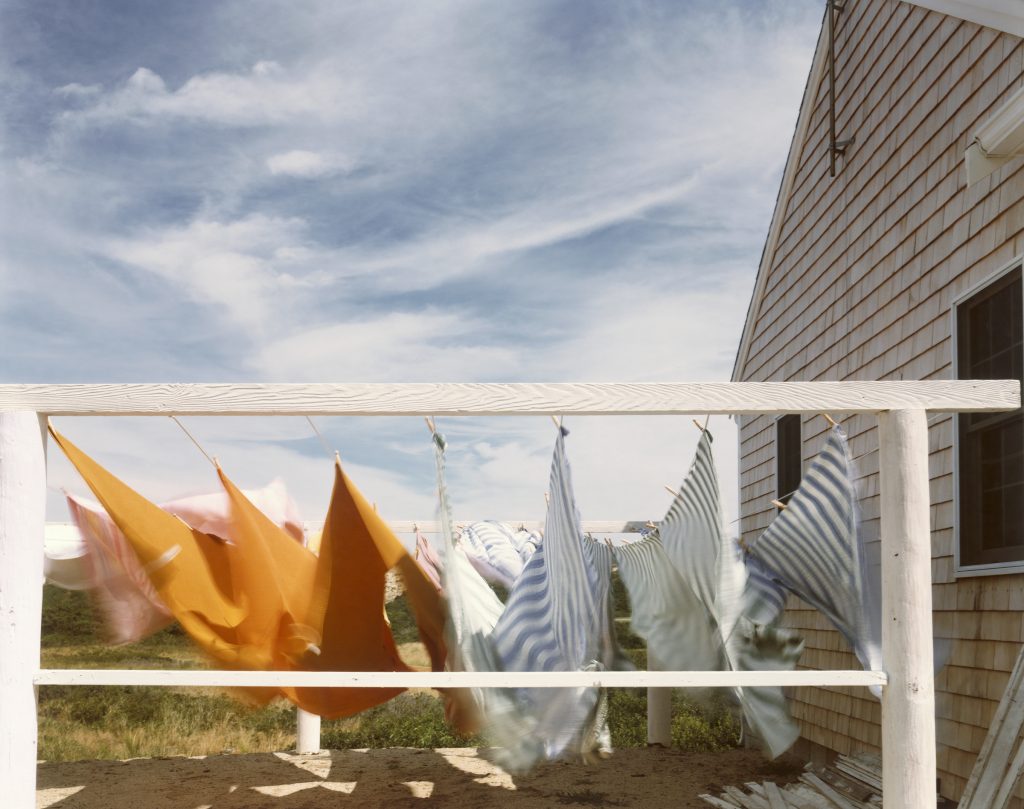Joel Meyerowitz went to Cape Cod, Massachusetts, with a vintage 8 x 10 inch Deardoff view camera seeking a different kind of photography to the type he had become accustomed to making with his Leica in New York. The resulting book of photographs, Cape Light, first published in 1978, is now regarded as one of the most significant photobooks of the twentieth century. Republished by the Aperture Foundation in 2015, it has sold over 100,000 copies.
Meyerowitz’s conversion from his usual 35mm camera to the 8 x 10 large format Deardoff, reflects the types of images which are included in his Cape Light series. His lightweight 35mm camera had provided him with the immediacy needed to capture fleeting moments he encountered while wandering the bustling streets of New York. However, for his trip to Cape Cod, the artist decided on the much heavier and complicated large format camera, insisting on a slower way of working. Meyerowitz reflects, ‘The street is all about intimacy and you have to have a sixth sense that something is capable of happening. With a large format camera, ‘it’s much closer to a meditative way of working.’ In this series, the artist’s large format camera lends itself to the expansive landscapes of Cape Cod, capturing its light and colours in immense detail, mundane scenes transcend their everyday nature and become romantically otherworldly.
Over the course of two summers, Meyerowitz photographed the coast, small towns and inhabitants of the Cape with great sensitivity to the scale and colour of the landscape. The large format camera required him to step back from his usual proximity to his subjects on the streets of New York and take in his larger surroundings. His Cape Light series appears nostalgic of summers past, while also holding a timeless quality. The artist himself suggests this while looking back on the series, ‘doing the printing on them and meditating on them again, the photos felt like they were eternal in some strange way… it’s hard to make the horizon line dated.’

Hartwig House, Truro, 1976. Joel Meyerowitz
Each photograph in the Cape Light series embodies fragmented memories of lazy summer days. Meyerowitz captures beach towels drying under the sun on a washing line, families lounging by the sea, and a seemingly familiar light-filled hallway leading to a door left ajar. In comparison to Meyerowitz’s photographs of chaotic cities, including New York and Paris, Cape Light consists of calm and contemplative images which focus on the nature of being. The series covers the change in light from dawn to dusk as well as the changing landscape from summer to autumn, mimicking the cyclical nature of life. The expansive skies and crystalline colours produced a new kind of photography – slow, meditative and experiential.
Just as Meyerowitz’s practice slowed down in order to acclimatise to shooting in large format, viewing the photographs also demands a slower pace than that typically allocated to photography. The photographs ask the viewer to take time and look completely, to become lost in the movement of colour through the landscape and accept viewing as an experience in itself. Similarly to the demand placed on the viewer by Mark Rothko’s colour field paintings to stop and partake in emotional response, Cape Light requests contemplation of the expansive reach of Meyerowitz’s lens, and the ephemeral changes of light and shadow captured with it
(By Flora La Thangue)
